The choice to file for bankruptcy is a big one that can affect your money and credit for a long time. Also, the legal process is complicated, so you should do your research before making a choice, even if you think it’s the best choice for you right now.
Chapter 7 bankruptcy and Chapter 13 bankruptcy are two of the most critical ways to file for bankruptcy. You can look at these chapter names in the United States Bankruptcy Code to learn more about how your debt is dealt with in each bankruptcy process. Depending on what you choose, if you decide to file for bankruptcy, you will either be put on a payment plan, or your debts will be paid off with the property you own.
What steps are involved in filing for bankruptcy?
If your bills are going up faster than you can pay them off, you may be able to get rid of all or part of your debts by filing for bankruptcy. It should only be considered a last resort when all other ways to get back in charge have been tried and failed.
Chapter 7 and Chapter 13 are the most common ways for people to file for bankruptcy. The most crucial difference between the two is what will happen to your property.
If you choose Chapter 7, sometimes called “liquidation,” you will have to sell some or all of your assets to pay off your debts. For people who don’t already own a home and are on a tight budget, this choice has many benefits:
Chapter 13, also called “reorganization bankruptcy,” lets you keep your home and car if you follow a court-ordered repayment plan for three to five years after you file for bankruptcy. For this option to be available, you must have a lot of unpaid, unsecured debt.
Whether or not you have to sell some of your property if you file for Chapter 7 bankruptcy depends on where you live and whether or not you are married. This is because there are exemptions at the state and federal levels.
Your take-home pay will be reduced by assets that qualify for an exemption, such as the value of your home, the money in your retirement account, or even personal items like jewelry. The last thing the money will be used for is to pay off any bills that are still due.
- When you file for bankruptcy, you can’t get rid of some debts, like current income taxes, child and spousal support payments, student loans, and a few other types of debt. To file for Chapter 7 bankruptcy, you must show that you can’t pay any of the above obligations.
- If you have a small debt left and have taken care of your other obligations, this may not be a big deal for you. Chapter 7 bankruptcy lets you eliminate a wide range of unsecured debts, such as medical bills, credit card debt, and student loans. These include debts like credit card debts and debts from medical bills.
- In Chapter 13 bankruptcy, you can pay back certain special obligations through a court-approved repayment plan. With this plan, you have more control over your money because it is tailored to your situation and keeps you safe from all your creditors during the whole process.
- If you don’t have this protection, it could be a big deal because the law tends to give creditors of this kind strong powers to get their money back without it. In some cases, like income taxes, you can also avoid interest and penalties to lower the total amount of money you owe.
Taking care of debtors who have a claim on your home
If you file for Chapter 7 bankruptcy, you can keep any collateral or give it up. So, you can decide that you can’t pay your mortgage or car payment anymore, in which case you can choose to give up the house or car and get rid of any remaining debt.
You can also develop a payment plan to keep the collateral and still repay the loan. A grace period may be given to you as long as the creditor gives you enough time to catch up.
Chapter 13 bankruptcy, on the other hand, lets you pay off your home or car loan over a three- to five-year period. You can also “cram down” the loan on an older car to the vehicle’s value, lowering your monthly payment and saving you money.
The difference between Chapter 7 and Chapter 13 bankruptcy
Most of the time, Chapter 7 bankruptcy is better for simple situations, while Chapter 13 bankruptcy is better for more complicated cases. If you file for Chapter 13 bankruptcy and have nonexempt assets and certain types of creditors, you may gain more control and flexibility over your finances.
So, Chapter 7 bankruptcy might be a better choice if you don’t have any of these types of debt or assets or if you don’t have a lot of tangible assets.
Then there will be some examples of how knowing the difference can be very helpful. If you owe money to your ex-spouse, you can file for bankruptcy under either Chapter 7 or Chapter 13. There is no way to get out of paying alimony or child support under either Chapter 7 or Chapter 13 “adjustment of debts” rules (written off).
Under Chapter 13 of the Bankruptcy Code, you can get rid of “property settlement debts,” other debts related to your divorce. If you think your divorce will leave you with a lot of debt that isn’t related to child support, talk to a lawyer about whether you should file for Chapter 13 bankruptcy.
Responsibilities for Taking Care of and Giving Out Property
As a result of a separation or divorce, you may have to take on new financial responsibilities. The law on bankruptcy divides these responsibilities into the following groups:
Even though the words “alimony, maintenance, or support” may not be in the decree, the terms “support obligations” and “property settlement obligations” are used to talk about the same thing: the debts that are “in the nature of alimony, maintenance, or support.”
In the first group, regular payments for child support and spousal support go without saying. But this can also include a court order that says you must pay certain ongoing costs “in the nature of” support.
This includes continuing health insurance premiums, all or part of future medical costs, and a child’s education. In some cases, the ex-spouse may have to pay the ex-spouse’s legal fees during the divorce process. This is especially true if the legal fees were caused by a dispute over child support or alimony.
The second type of “property settlement” duties involves things that don’t have to do with money. When a couple asks for a divorce, the court will divide their “property,” which includes their assets and any debts they still have to pay.
In addition to deciding who gets what, a divorce settlement may also make sure that each person has the same amount of responsibility. In exchange for a more significant share of the assets, one party has to give the other a set amount of money. Depending on the circumstances, a divorce decision may also say that one has to pay the rest of a debt they owe together or pay a debt that only the other one owes.
By reading the document, you can usually tell if a debt mentioned in a separation or divorce decree is part of the first set of obligations or the second set. As a result, this isn’t always clear. In case of a disagreement, the bankruptcy court makes the final decision, not the divorce court.
If you’ve already shut down your business, you may be wondering what to do with the debts you racked up while it was still open, or if you’re thinking about doing so, you may be wondering the same thing.
There are many things to think about here, one of which is how much debt you already have. Both Chapter 7 and Chapter 13 bankruptcy have different ways of getting rid of business debts. Here are some of the most common types of business debt.
Which is better: Chapter 7 or Chapter 13?
When it comes to going bankrupt, no one solution works for everyone. Talk to a professional about bankruptcy to determine if Chapter 7 or 13 is right for you. Before you file for bankruptcy, make sure that your debts can be taken care of and that you can use the fresh start that bankruptcy gives you.
Most people choose Chapter 7 bankruptcy because it is faster and less expensive than Chapter 13. The means test looks at a person’s income, how much they spend, and how many people are in their family to decide if they can get Chapter 7.
In Chapter 7 bankruptcy, you can eliminate your credit card debt, medical bills, and personal loans. Students’ student loans and taxes are often not eligible for debt relief. When it comes to secured loans, like those backed by a house or car, Chapter 7 doesn’t let you catch up on payments and doesn’t protect your property from foreclosure or seizure.
A bankruptcy trustee is an administrator who works with the bankruptcy courts to represent the debtor’s estate. In some cases, the trustee may sell nonexempt items, which are things that aren’t protected from being liquidated during bankruptcy. State law says that the things that aren’t taxed are different.
Conclusion
It is always confusing to choose the better one between these chapters. But we anticipate that our blog will help you effectively while choosing one here for your purpose.

